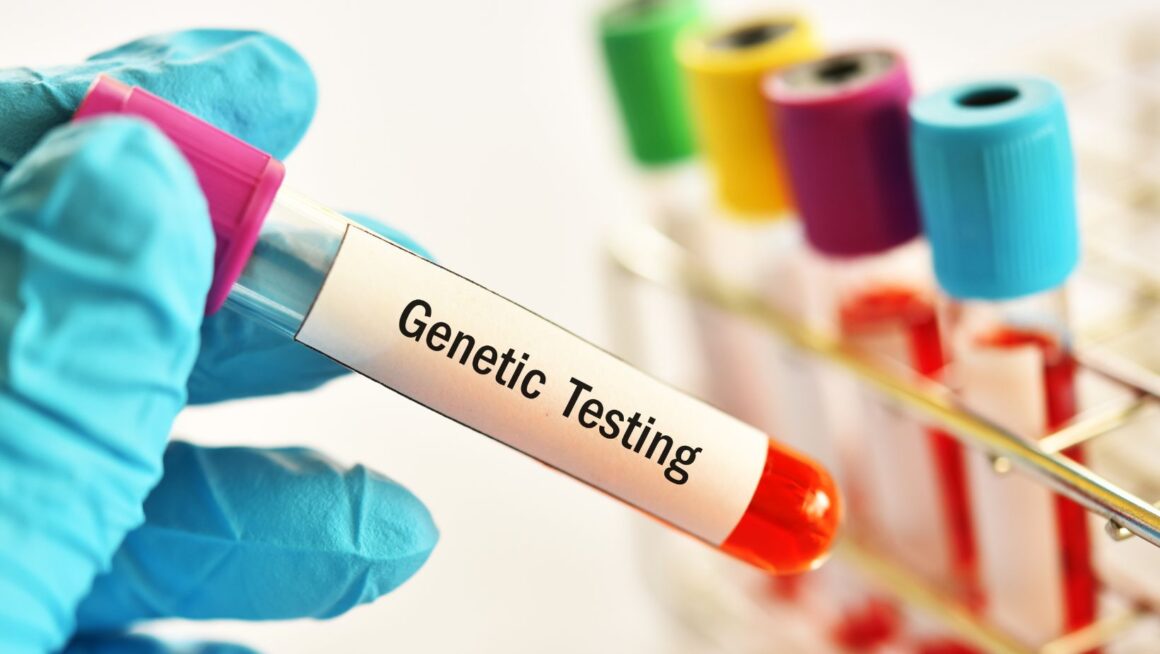In the era of personalized medicine, genetic testing has emerged as a powerful tool to unfold the secrets of our DNA and transform our approach to health and well-being. With the increasing accessibility of at-home genetic testing kits, individuals now have the opportunity to gain valuable insights into their genetic makeup and make informed decisions about their health. This comprehensive guide will delve into the world of genetic testing, exploring its benefits, applications, and the potential it holds for revolutionizing healthcare.
Understanding Genetic Testing
Genetic testing is a type of medical test that analyzes an individual’s DNA to identify variations or mutations in their genes. These genetic changes can provide valuable information about a person’s risk for certain diseases, their response to medications, and even their ancestral background. Genetic tests can be performed using a sample of blood, saliva, or other bodily tissues, and the results are interpreted by qualified healthcare professionals.
The Power of Genetic Insights
Personalized Medicine
One of the most significant advantages of genetic testing is its ability to pave the way for personalized medicine. By understanding an individual’s unique genetic profile, healthcare providers can tailor medical treatments and interventions to optimize their effectiveness and minimize potential side effects. This approach takes into account the complex interplay between genes, environment, and lifestyle factors, allowing for a more precise and targeted approach to healthcare.
Preventive Care and Early Detection
Genetic testing can also play a crucial role in preventive care and early detection of diseases. By identifying genetic variations that increase an individual’s risk for certain conditions, such as cancer or cardiovascular disease, healthcare providers can recommend appropriate screening tests and lifestyle modifications to mitigate those risks. Early detection often leads to better treatment outcomes and improved quality of life.
Reproductive Planning
For individuals and couples planning to start a family, genetic testing can provide valuable information about the risk of passing on inherited genetic disorders to their offspring. Carrier screening tests can identify individuals who carry a recessive gene for a particular condition, even if they don’t manifest the disorder themselves. This knowledge empowers couples to make informed decisions about their reproductive options and seek appropriate genetic counseling.
The Rise of At-Home Genetic Testing
In recent years, at-home genetic testing kits have gained popularity, making genetic testing more accessible and convenient than ever before. Companies offer direct-to-consumer genetic testing services that allow individuals to explore their genetic heritage, discover potential health risks, and even connect with long-lost relatives.

However, it’s essential to approach at-home genetic testing with caution and understand its limitations. While these tests can provide interesting insights, they may not be as comprehensive or accurate as genetic tests ordered by healthcare professionals. It’s crucial to interpret the results in the context of one’s overall health, family history, and lifestyle factors, and to seek the guidance of a qualified healthcare provider when making decisions based on genetic information.
Choosing a Reliable Genetic Testing Provider
When considering genetic testing, whether at home or through a healthcare provider, it’s important to choose a reputable and reliable testing company. One such provider is 3X4 Genetics, a company dedicated to supporting the treatment of various health conditions through advanced genetic testing and analysis.
This company offers a range of genetic tests that can help healthcare providers make informed decisions about medication selection, lifestyle interventions, and preventive care strategies. By analyzing an individual’s unique genetic profile, they provide personalized recommendations to optimize treatment outcomes and support overall health and well-being.
It’s important to note that while genetic testing can offer valuable insights, it should not be considered a substitute for medical advice or treatment. Genetic testing should always be performed in consultation with a qualified healthcare professional who can interpret the results and develop an appropriate plan of action based on an individual’s specific needs and circumstances.
The Future of Genetic Testing
As our understanding of the human genome continues to expand, the potential applications of genetic testing are vast and exciting. Researchers are constantly discovering new genetic variations and their associations with various health conditions, paving the way for more targeted and effective treatments.
In the future, genetic testing may become a routine part of preventive healthcare, allowing individuals to proactively manage their health risks and make informed lifestyle choices. Pharmacogenomics, the study of how genes affect an individual’s response to medications, may revolutionize the way drugs are prescribed, minimizing adverse reactions and optimizing treatment outcomes.
Moreover, genetic testing may play a crucial role in advancing precision medicine, where healthcare interventions are tailored to an individual’s unique genetic, environmental, and lifestyle factors. By leveraging the power of genetic information, healthcare providers can develop personalized treatment plans that address the root causes of diseases and promote optimal health and well-being.
Integrating Genetic Testing into Your Health Journey
If you’re considering incorporating genetic testing into your health journey, it’s essential to approach it with a clear understanding of its benefits, limitations, and potential implications. Start by educating yourself about the different types of genetic tests available and their specific applications.
When selecting a genetic testing provider, look for a reputable company that prioritizes scientific accuracy, data security, and patient privacy. Engage in open and honest conversations with your healthcare provider about your genetic testing goals and concerns, and work together to develop a personalized plan that integrates genetic insights into your overall health strategy.

Remember that genetic testing is just one piece of the complex puzzle, and that is your health. While it can provide valuable information and guide decision-making, it should be considered in conjunction with other factors such as lifestyle, environment, and family history. Embrace genetic testing as a tool to empower yourself and take proactive steps towards a healthier future.
Conclusion
Genetic testing has the potential to transform the way we approach health and well-being, offering unprecedented insights into our unique genetic makeup and its implications for our health. From personalized medicine to preventive care and reproductive planning, the applications of genetic testing are vast and promising.
As at-home genetic testing becomes more accessible and affordable, individuals have the opportunity to take a more proactive role in managing their health. However, it’s crucial to approach genetic testing with caution, choose reputable providers, and seek the guidance of qualified healthcare professionals to interpret and act upon the results.
As we navigate the exciting frontier of genetic testing, it’s essential to prioritize privacy, security, and ethical considerations. By doing so, we can harness the power of our genetic information to make informed decisions, optimize our health, and contribute to the advancement of precision medicine.
Ultimately, genetic testing is a valuable tool in the pursuit of optimal health and well-being. By embracing its potential and integrating it into a comprehensive healthcare strategy, individuals can take control of their health destiny and pave the way for a brighter, healthier future.



